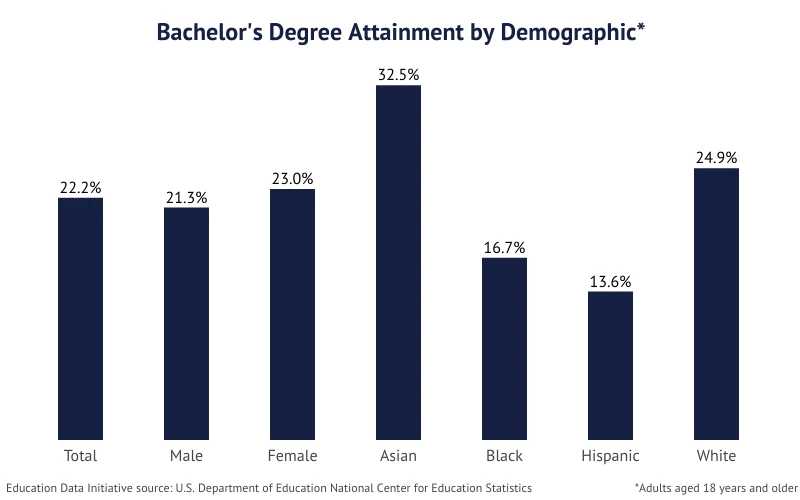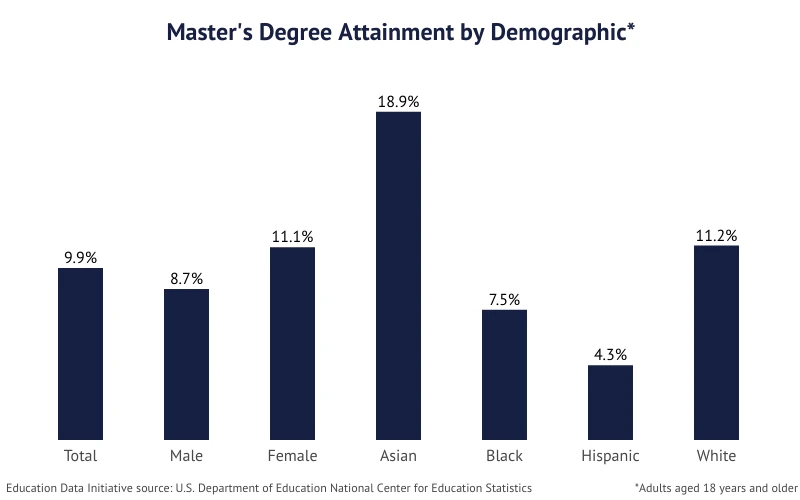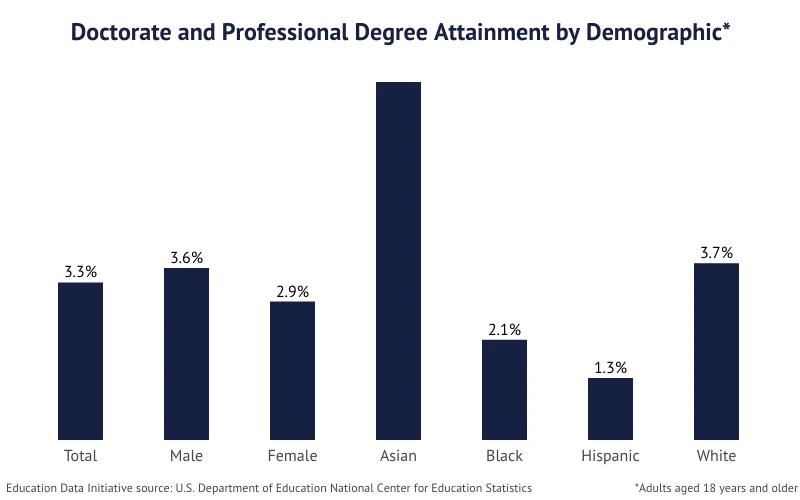NewsVine_Mariyam
Diamond Member
I saw a reference to this a while back but missed the source so now I'm happy to see it validated. I'm curious as to how this is interpreted by others. In other words, why are DEI proponents so insistent on perpetuating the myth that Black people, in this case, Black women are being "given" jobs when they are allegedly "unqualified" or lesser "qualified" than their white counterparts?
Who Are the Most Educated Women in America? Black Women
Who Are the Most Educated Women in America? Black Women
By Nikki Katz
Updated on September 21, 2024
American women have had to fight for their right to an education. Well into the 20th century, women were discouraged from pursuing higher education, as it was a popular notion that too much education would make a woman unfit for marriage. Women of color and poor women also experienced other structural impediments to their education for much of the nation’s history that made it less likely for them to pursue an education. To that end, women were not the most educated demographic in America at that time.
However, times have certainly changed. In fact, since 1981, more women than men have been earning college degrees. Furthermore, these days, women outnumber men on many college campuses, making up 57% of college students.1 As a college professor at a large, land-grant university, I notice that I often have many more women than men in my courses. In many disciplines—though certainly not all—gone are the days when women were numbered few and far between. Women are unabashedly seeking educational opportunities and charting new territories.
Things have also changed for women of color, particularly those from historically underrepresented minorities. As legalized discrimination has given way to more opportunities, women of color have become more educated. While there is certainly room for improvement, Black, Latina, and Native American women are continuing to matriculate onto college campuses in increasingly larger numbers. Indeed, some studies show that Black women are the most educated demographic in America. But what does this mean for their opportunities, wages, and quality of life?
The Numbers
Despite stereotypes about African Americans, Black Americans in the United States are among those most likely to earn a postsecondary degree. For example, the National Center for Education Statistics reported that from the academic years 2000–2001 to 2015–2016, the number of bachelor's degrees awarded to Black students increased by 75% and the number of associate degrees earned by Black students increased by 110%.2 Black students are making headway in graduate education as well, with, for example, the number of Black students enrolled in master's degree programs nearly doubling between 1996 and 2016.3
These numbers are certainly impressive, and belie the notions that Black people are anti-intellectual and uninterested in school. However, when taking a closer look at race and gender, the picture is even more striking.
The Most Educated Demographic in America
The claim that Black women are the most educated demographic in America comes from a 2014 study that cites the percentage of Black women enrolled in college in relation to their other race-gender groups.4 Considering enrollment alone gives an incomplete picture. Black women are also starting to outpace other groups in earning degrees. For example, although Black women only make up 12.7% of the female population in the country, they consistently make up over 50% of the number of Black people who receive postsecondary degrees.5 Percentage-wise, Black women outpace white women, Latinas, Asian/Pacific Islanders, and Native Americans in this arena as well.
Yet despite the fact that Black women are enrolled in and graduating from school in the highest percentages across racial and gender lines, negative depictions of Black women abound in popular media and even in science. In 2013, Essence magazine reported that negative imagery of Black women appears twice as often as positive depictions. Images of the “welfare queen,” “baby mama,” and “angry Black woman,” among other images, shame working-class Black women’s struggles and reduce Black women’s complex humanity. These depictions are not just hurtful; they have an impact on Black women’s lives and opportunities.
Education and Opportunities
High enrollment numbers are indeed impressive; however, despite being termed as the most educated demographic in America, Black women still make far less money than their white counterparts



